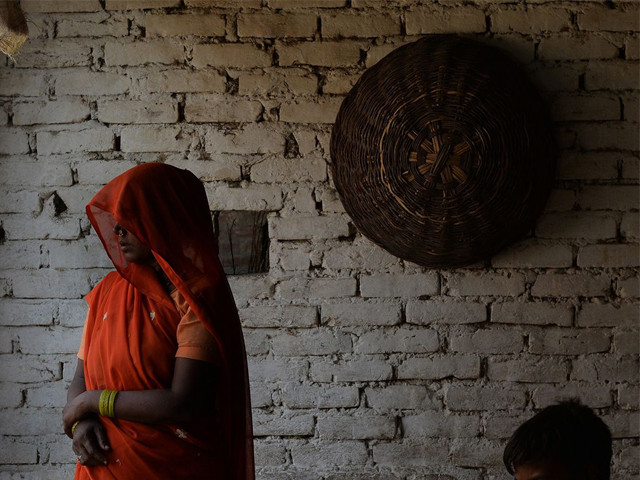The recent spate of rapes in the state of Uttar Pradesh in India has left everyone horrified. Along with the typical reactions from politicians and international agencies that accompany such heinous crimes, the link between lack of access to toilets and increased risk of rape, in particular, has received considerable attention in the national and international media.
While the focus on the need for better sanitation is encouraging, I find it somewhat intriguing because neither the problem nor its consequences are ‘new’. In fact, it is one of the most fundamental requirements for any human being and therefore needs to be a constant priority as opposed to making the headlines only when an untoward incident takes place. I also believe that the relationship between rape and sanitation is far more complex than has been portrayed.
Firstly, it is important to emphasise that access to a toilet in the home does not necessarily equal use. Various government programs and NGO initiatives have failed because people don’t feel a sense of ownership and use the toilet for everything but sanitation. In fact, it is well known that toilets constructed under government schemes often fall into disrepair and are subsequently used as storage spaces. This is because many of these programs have adopted a ‘we know what’s good for you’ approach as opposed to understanding the needs and aspirations of local communities and focusing on those who are disproportionately affected.
For instance, in my experience, women usually champion the cause of sanitation the most because unsurprisingly they are the worst affected by its absence. Rape is one very severe risk that women face when they go out in to fields late at night or early in the morning but they are also confronted with innumerable health issues, teasing and molestation on a daily basis which perhaps don’t get reported as much because women have accepted these challenges as an inextricable part of their lives. Despite this, many sanitation programs focus primarily on the hardware aspects of construction as opposed to the softer issues of appreciating human needs and desires, facilitating the process of behaviour change, ensuring an explicit focus on women and sensitising men to the problems women face because of the absence of a toilet. Sensitisation is critical because decision making, including whether or not to invest in a toilet, is often the prerogative of men.
Secondly, given the technical challenges associated with constructing household-level toilets in space constrained environments like slums, community toilets have an important role to play. However, these toilets are usually poorly maintained and unsafe for women. In fact, many rapes have taken place inside community toilet blocks, including those in schools because they are poorly lit or secluded. Moreover, access to public toilets is often inequitable because of social and cultural norms. For instance, I have seen villages where women who belong to a ‘lower’ caste are not allowed to use the community toilet.
Thirdly and perhaps most importantly, we should not forget that the root cause of this problem is not so much the paucity of toilets but the engrained patriarchal mind-set. The majority of rapes are committed by perpetrators who are known to women and are people they trust implicitly. In fact, a number of crimes against women take place inside the home and are committed by relatives. Additionally, some women are raped because they ‘break’ certain societal rules and hence need to be ‘punished’. Others are raped inside police stations when they go to file a complaint.
Is it unfair that two young girls had to go out in the dark to look for a toilet on that ill-fated night? Absolutely yes. In fact, it is something that should put all of us collectively to shame. However, I would go a step further and ask why the girls shouldn’t have expected to go out at night without worrying about rape or murder? Why do women constantly have to worry about when to step out of their homes?
We need to stop finding convenient reasons like a woman’s clothing or lack of a toilet to explain rape. What we need to tackle are the perverse norms which ensure that girls are given food only after all the male members in the household have been well fed, a society that is tolerant of political leaders who make statements along the lines of ‘boys will be boys’ and a culture that allows men to define the boundaries of right and wrong for women.
Rape doesn’t happen in isolation. It is one terrible outcome of a deep rooted mind-set that manifests in multiple ways in the daily life of a woman. Amidst all the talk of new sanitation campaigns being launched post these inhuman incidents, let us not forget to confront the far more difficult challenge of destroying age-old norms and ensuring that every woman is treated with respect and dignity.
Let us collectively resolve to do our own little bit for this is certainly not India’s problem alone. From villages in Brazil to urban slums in South Africa and cities in Pakistan, women face the same plight. While some incidents receive more media and political attention than others, all are equally important because they involve a precious human life that is scarred or taken away forever.
Can access to a toilet prevent rape?
We need to stop finding convenient reasons like a woman’s clothing or lack of a toilet to explain rape.



COMMENTS
Comments are moderated and generally will be posted if they are on-topic and not abusive.
For more information, please see our Comments FAQ